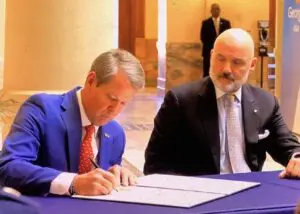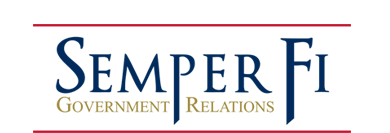Business Development and Procurement Lobbying Services
Connecting Business Leaders With Government Decision Makers

Winning Procurement Strategies
Who We Are
At Semper Fi GR we have learned that one of the most reliable clients a business can have is a U.S. Government Agency (State, Local, Federal). The prompt payment of bills from such agencies is a significant benefit for businesses. However, engaging with government agencies and their key decision-makers requires a thorough understanding of the complex rules and regulations that govern interactions and lobbying activities.
Having accumulated over 15 years of experience in navigating various State and Federal agencies for the purpose of securing business contracts through Procurement Lobbying, we can attest to the importance of being well-informed before bidding on government solicitations. It is crucial for companies to be aware of the specific regulations that each agency has in place regarding the influencing of future solicitations.
Many companies often overlook the legal intricacies surrounding lobbying activities and the implications of not adhering to the rules set forth by government agencies. For instance, many companies believe they can send a salesperson to meet with an agency decision-maker and discuss a forthcoming solicitation. without having the requisite knowledge of the governing laws could face fines and disqualification from future solicitation bids with that agency. This oversight could have severe repercussions, potentially resulting in wasted resources, both in terms of time and money, dedicated to pursuing a lucrative contract opportunity.
It is a common misconception among businesses that only designated “lobbyists” need to register as such, while sales personnel or other employees may believe they are exempt from such requirements. However, any individual who seeks to influence government officials in any capacity is considered to be engaging in lobbying activities. Therefore, companies must ensure that all employees involved in interactions with government personnel are compliant with the relevant lobbying regulations to avoid any legal pitfalls.
Notably, incumbents in government contracts are particularly vigilant in monitoring compliance with lobbying rules. A simple allegation that a salesperson from a competing company engaged in inappropriate interactions with decision-makers can lead to protests and legal challenges. Incumbents, who often have vested interests in retaining their contracts, are quick to leverage any perceived violations by competitors to prolong the procurement process through litigations and open records requests.
The competitive nature of bidding on large government contracts further underscores the importance of strict adherence to procurement lobbying rules. In instances where only a handful of companies meet the stringent qualifications for a billion-dollar solicitation, the stakes are exceptionally high. Missteps or oversights in following the rules can not only lead to legal disputes and protests initiated by losing bidders but also result in protracted litigations that can span years, causing disruptions to business operations and financial uncertainties.
“Procurement lobbying” encompasses a range of activities aimed at influencing government personnel in their decision-making processes related to contracts or grants. Organizations engaging in such practices must exercise caution and vigilance to ensure compliance with the specific rules and regulations governing lobbying activities in the procurement sphere.
The procurement process with government agencies demands a meticulous approach and a comprehensive understanding of the legal framework surrounding lobbying activities. Companies seeking to secure government contracts must prioritize compliance with procurement lobbying rules to mitigate risks, avoid disqualifications, and uphold their reputation in the competitive marketplace.
There are indeed various avenues for businesses to engage with government agencies that go beyond the conventional methods of responding to solicitations. While the traditional process involves submitting proposals in response to requests for information, proposals, or questions, there exist alternative strategies that can be equally effective in securing contracts with government entities.
One approach is through arranging introductory meetings with key decision-makers within the agency. By initiating discussions on how your company can address the agency's specific pain-points or challenges, you may have the opportunity to present a sole-source bid. In such cases, agency decision-makers often have discretionary thresholds for direct contract awards without the need for a formal competitive procurement process.
Another strategy is the development of pilot programs that serve as a trial run for potential larger contracts with the agency in the future. Offering these pilot programs at cost price can be an effective way to showcase the value and capabilities of your solutions. A successful pilot program can set the stage for the agency to issue a Request for Proposal (RFP) that is tailored based on the outcomes of your pilot, positioning your company as the preferred vendor.
Moreover, emergency procurements or awards present rare yet impactful opportunities for businesses to swiftly assist government agencies in urgent situations. During emergencies, states may have the authority to award contracts to companies without undergoing the usual procurement procedures. Engaging with agencies during such critical times can not only demonstrate your company's agility and readiness but also solidify long-term relationships with the government.
On a similar note, collaborating with strategic partners who already have established relationships with the target agency can be advantageous. These partners, such as Service-Disabled Veteran-Owned Small Businesses (SDV OSBs) or other 8(a) contractors, may already have access to contract vehicles or frameworks within the agency. Building strong partnerships with such entities can open doors to new opportunities and enhance your company's competitiveness in securing government contracts.
Furthermore, engaging with various SDV OSBs and 8(a) companies through meetings and networking events is essential for navigating the complex landscape of federal and state government agencies. Leveraging the expertise and existing relationships of these partners can significantly boost your company's visibility and credibility within the government contracting space.
In summary, a winning strategy may simply be to diversify your approach and explore unconventional methods of engaging with government agencies. We can help your company position itself for success in securing contracts and partnerships that drive business growth.

Get Bidding Assistance
INNOVATE * PLAN * ALIGN * COMMUNICATE * EXECUTE * WIN
Traditional Solicitation Response - Sole Source - Pilot Programs - Emergency Awards - Strategic Partners - SDVOSBs - Influencing RFPs to minimize those eligible to respond.
